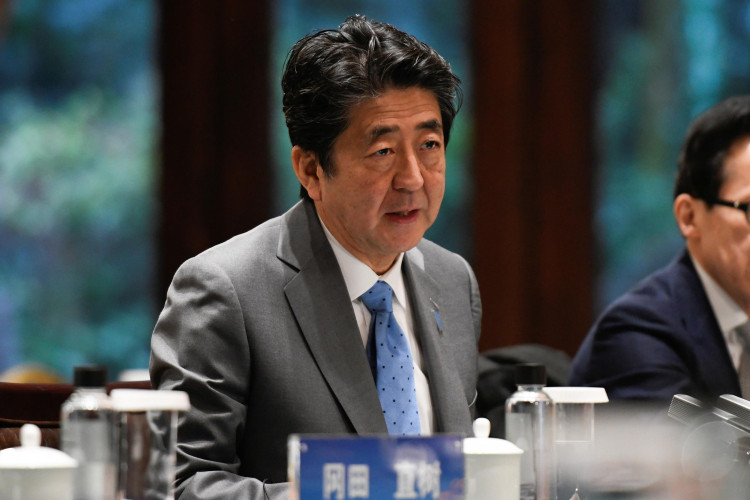Shinzo Abe's widow, Akie, brought his ashes into the Nippon Budokan Hall in the heart of Tokyo at 2 o'clock in the afternoon as a military band played and the honor guard saluted.
World leaders, including Australian Prime Minister Anthony Albanese and Indian Prime Minister Narendra Modi, attended the state funeral, along with U.S. Vice President Kamala Harris. The motorcade transporting Abe's remains had left his widow's residence in the capital, passing a line of standing armed soldiers wearing white uniforms.
As the ashes arrived, thousands of Japanese citizens lined up outside the Budokan to bring flowers and offer prayers inside two mourning tents. Abe served as Japan's prime minister for the longest period of time and is one of the nation's most recognizable politicians. He is renowned for forging international alliances and his "Abenomics".
A sizable photograph of Abe was put over a bank of green, white, and yellow flowers inside the Budokan, best renowned as a performance venue, and it was covered in black ribbon. A wall of pictures close by showed him jogging alongside G7 leaders, holding hands with kids, and touring disaster zones.
He left office in 2020 due to ongoing health issues, but he continued to be a significant political figure. On July 8, a lone shooter assassinated him when he was participating in a campaign for his ruling party. The assassination shocked a nation renowned for having a low gun crime rate and sparked outrage on a global scale.
However, the choice to grant him a state funeral-the only one for a former prime minister in the post-war era-has sparked significant resistance, with recent polls showing that roughly 60% of Japanese are against the ceremony. A man set himself on fire last week close to the prime minister's office, allegedly leaving notes against the ceremony, and thousands have demonstrated against it. Additionally, several lawmakers from opposition parties are completely boycotting the burial.
The uproar has several root causes. Some claim Kishida approved the burial unilaterally without consulting parliament, while others are upset by the cost. It is also a result of Abe's controversial presidency, which was characterized by continuous cronyism claims, opposition to his nationalism, and aspirations to change the pacifist constitution.
Kishida and politicians, including Yoshihide Suga, who succeeded Abe following his departure, will offer eulogies to the mourners. As neutral national figures, Japan's emperor and empress are not there, but Crown Prince Akishino and his wife are anticipated to lead mourners in presenting flowers at the conclusion of the 90-minute event.





